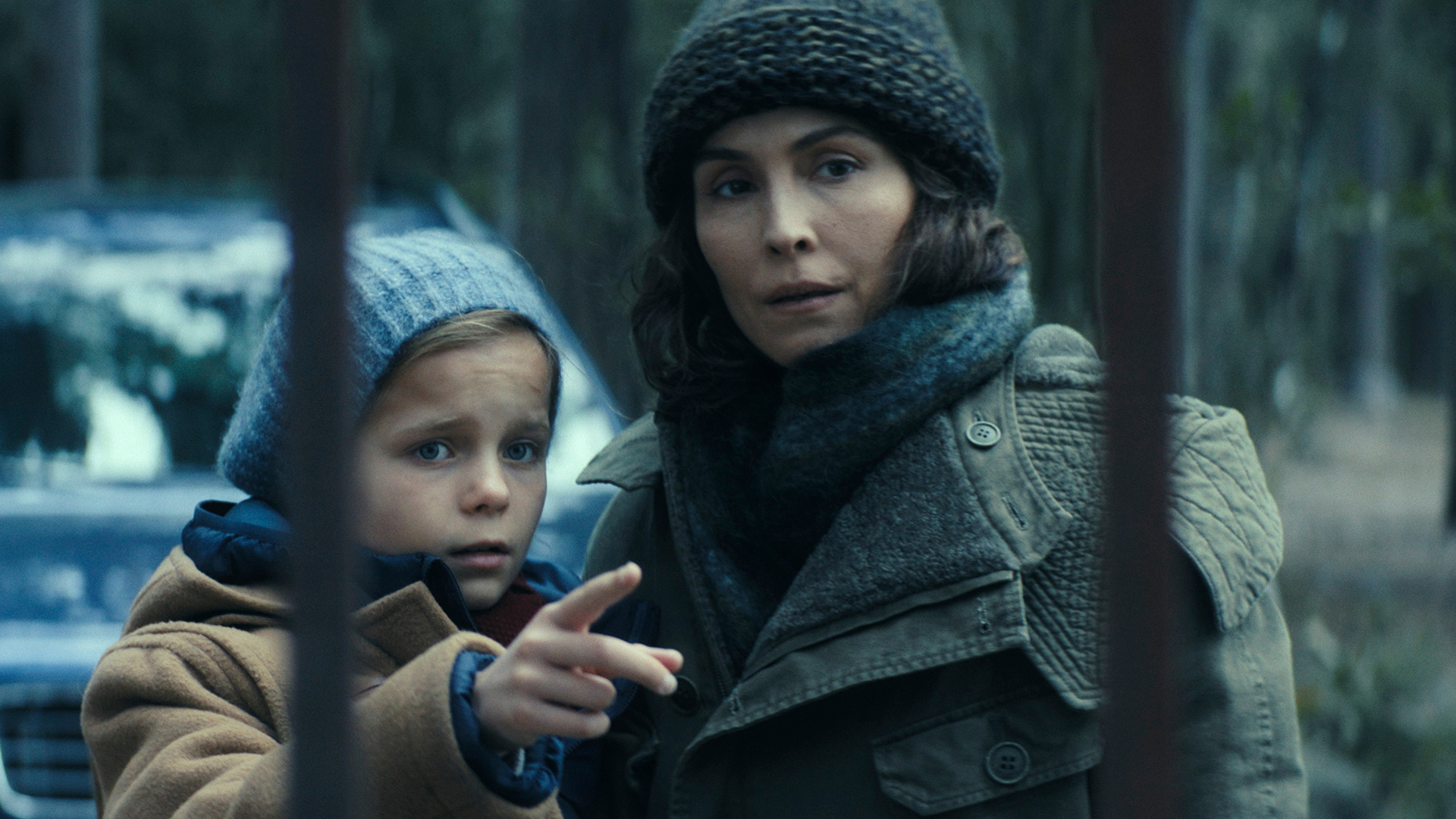
If there's one perfect word to describe "Constellation" so far, it's "uneven" (as much as it pains me to say it). After an explosive three-episode premiere that left us worried about the show's long-term appeal – despite the stunning artistry and acting on display – episode 4 turned things slightly around with compelling character drama and some neat tricks.
With Oliver Hirschbiegel once again in the director's chair, episode 5 ('Five Miles Out, the Sound Is Clearest') feels too meandering and unengaging to keep the momentum going, instead shifting back to focus on the writing's weakest links and paper-thin mystery. However, it does provide a wider look into the conspiracy surrounding the otherworldly plot at its center and ends with a genuine headscratcher.
It's also worth pointing out that, as fantastic as Noomi Rapace is, sidelining Jonathan Banks' two Calderas is a massive step back that hurts the pace. Although it has to be said that the supporting cast is superb and adds some much needed flavor to the show.
"Constellation" is just one of many exciting new sci-fi shows and movies coming out in 2024: Netflix released "Spaceman", a trippy space movie starring Adam Sandler; Paramount Plus have "Halo" season 2, a TV series based on the popular sci-fi game franchise; and Apple TV+ have just wrapped up "For All Mankind" season 4.
Mild spoilers ahead for "Constellation" season 1 episode 5: 'Five Miles Out, the Sound is Clearest'
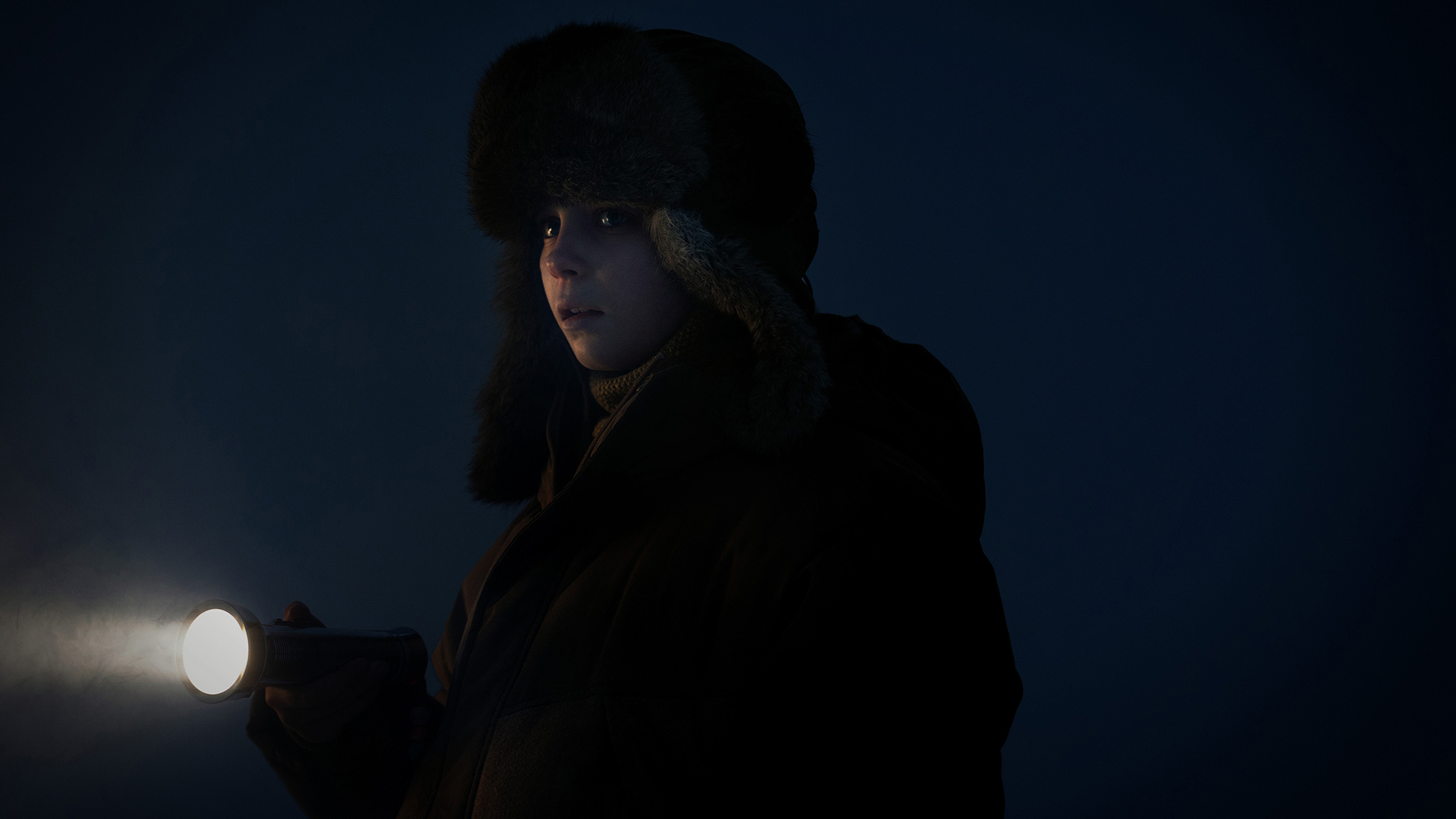
'Five Miles Out, the Sound is Clearest' barely has any science talk, and is generally all about the deteriorating situation guiding (or misguiding) the characters.
Last week's cliffhanger ending, where Jo (Noomi Rapace) shoves Magnus (James D'Arcy), resulting in him hitting his head and potentially dying on the spot, is instantly walked back. Well, he's okay-ish. Jo grabs Alice (Davina and Rosie Coleman) and races out the house, convinced that everyone is plotting against her and don't believe a word of what's she's been rambling about ever since she escaped the International Space Station (ISS).
Jo also decides to steal the CAL experiment without any real plan and not finding any sort of security on her way, which comes across as lazy writing at best. It seems that it was important to get our protagonist from point A to B, but even with all the emotional stress and external pressure, Jo's actions in this episode lack the believability that made the previous chapter so enjoyable. Meanwhile, Rosie and Davina Coleman (it's hard to discern which of them gets the most screentime this week) continue to struggle with ill-defined characterization that makes Alice swing between naivety and matureness with awkward ease.
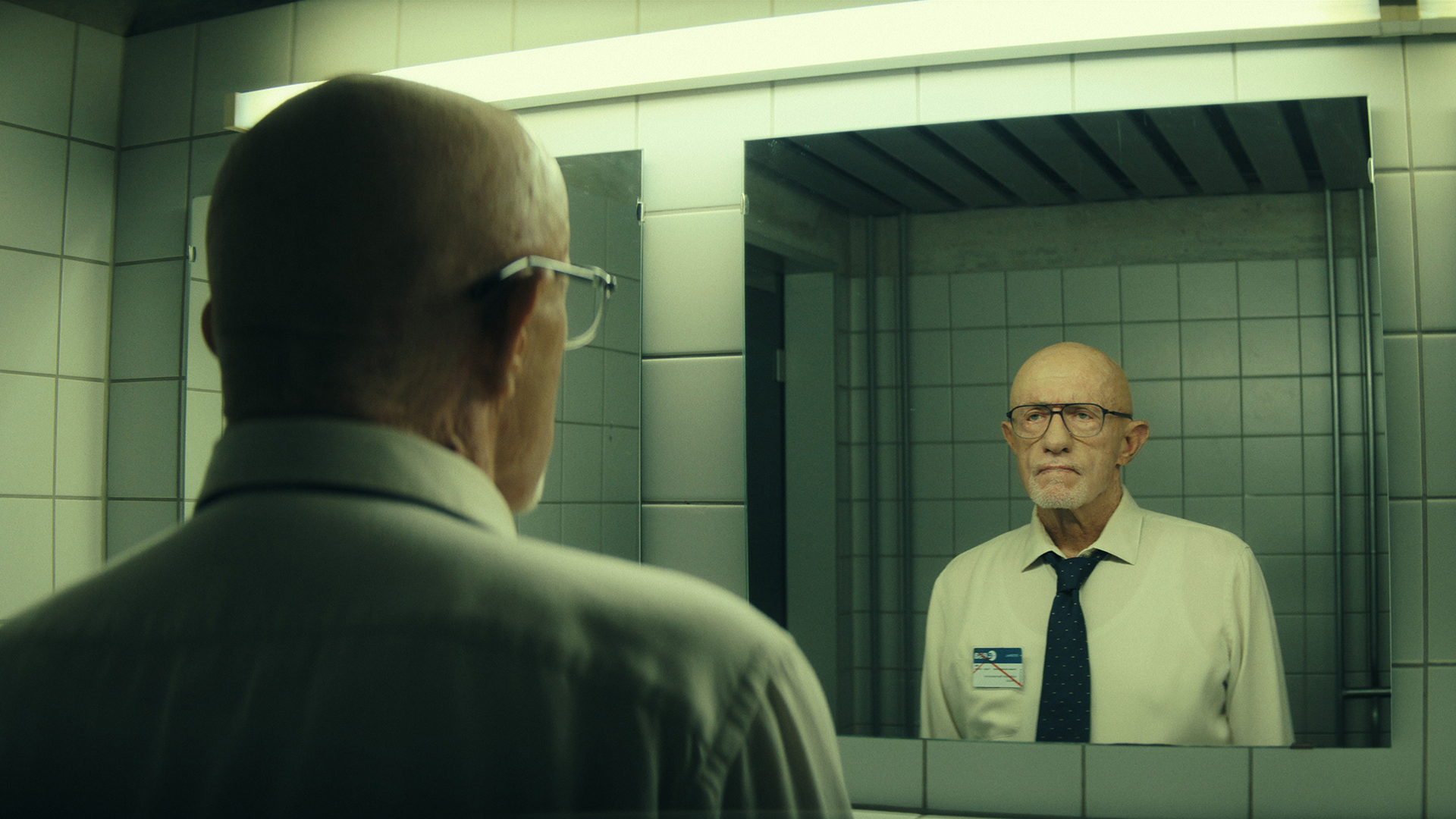
Bud and Henry Caldera (Jonathan Banks) aren't completely irrelevant in this episode – they're mostly relegated to illustrating how both realities are starting to merge for some of the people affected by the CAL experiment. We're not talking crazy visuals here, but rather how two unstable minds are losing track of what's real and what isn't while taking over each other's position. For Banks' two personas, declining health is also an issue, and it seems that Bud isn't on great terms with his daughter.
Jo's impromptu road trip takes her to Denmark and later Sweden (wild ellipses at play here), allowing her to spend some (low-quality) time with her daughter-but-not-really. It's perhaps in the quieter scenes between Jo and Alice that we see some semblance of reason existing in this mother-daughter relationship, but Jo clearly isn't doing her best here, constantly bombarding Alice with information and questions too big for a child to comprehend. It does work though as Alice is among the few people Jo can trust, especially when she reveals she's seeing and hearing weird stuff too (dead cosmonaut included) that she attributes to "The Valya."
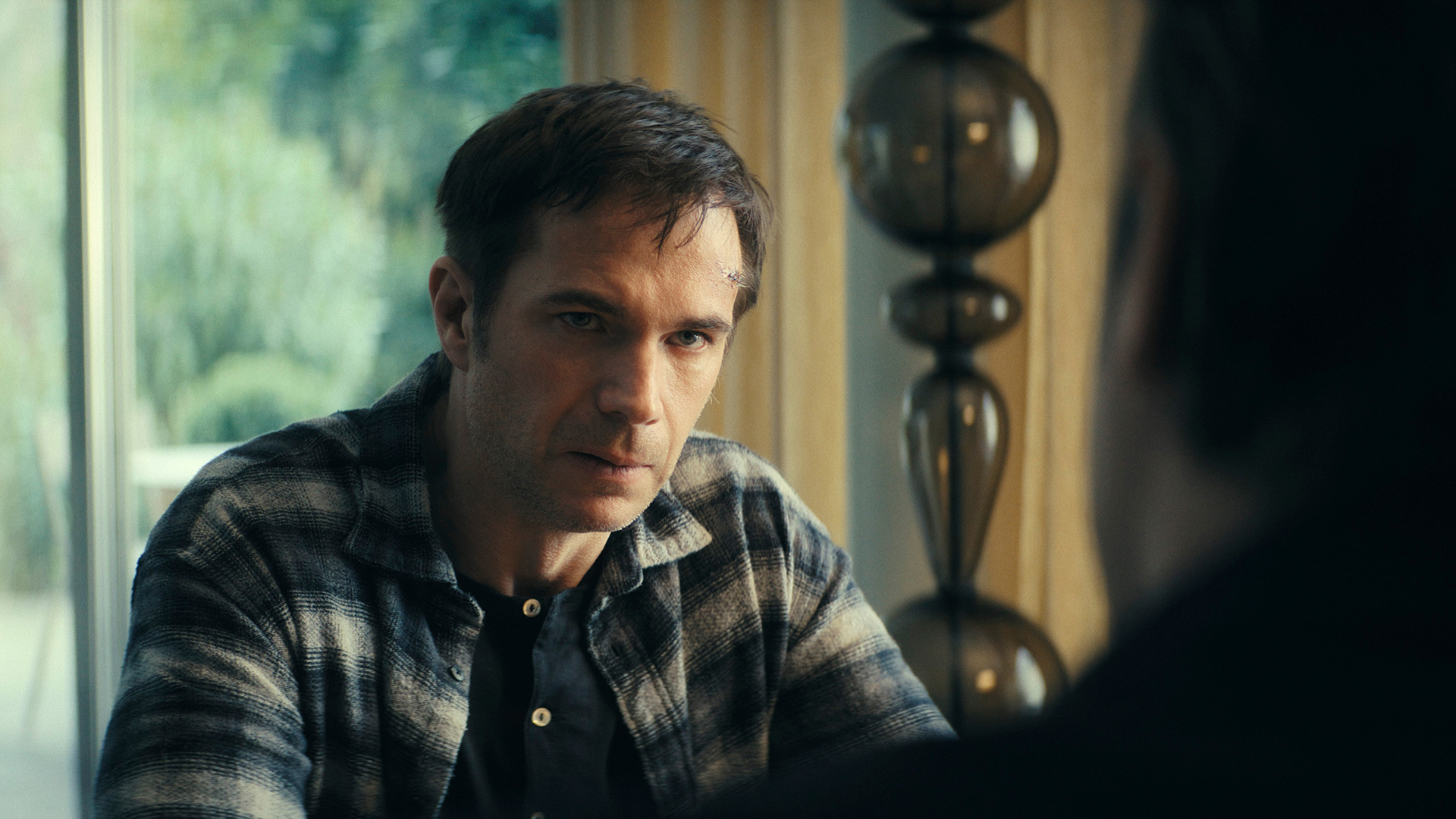
Frederic and Magnus choosing not to call the authorities on Jo is a well-reasoned, smart choice. While the show could use an injection of more visceral excitement at this point, vehicular chase scenes wouldn't feel quite right. Instead, they're hoping for the best in order to save both the European Space Agency (ESA) and Jo's reputation.
Another unexpected positive is seeing one of Jo's ISS co-workers, Ilya Andreev (Henry David), getting a bit of the spotlight and also facing what definitely looks like a good ol' conspiracy. "Constellation"'s secret weapon could be what's been going on for decades prior to the CAL experiment instead of its consequences, weird as that might seem. Some answers have already been spelled out, yet it's hard to discern how everything comes together beyond the reality-bending phenomena. In fact, that's why we still believe "Constellation" is worth sticking around for.
The series isn't done yet with Jo's "crazy pills" nor the matter of those in power trying to hide a potential accident that happened decades ago. This is the extra layer of mystery that will hopefully pay off and make the entire ride more memorable. While we're not betting any money on it, it'd be an effective way to actually surprise viewers. We want to believe there's more to "Constellation" than a handful of (largely well-acted) characters fumbling about in the dark.
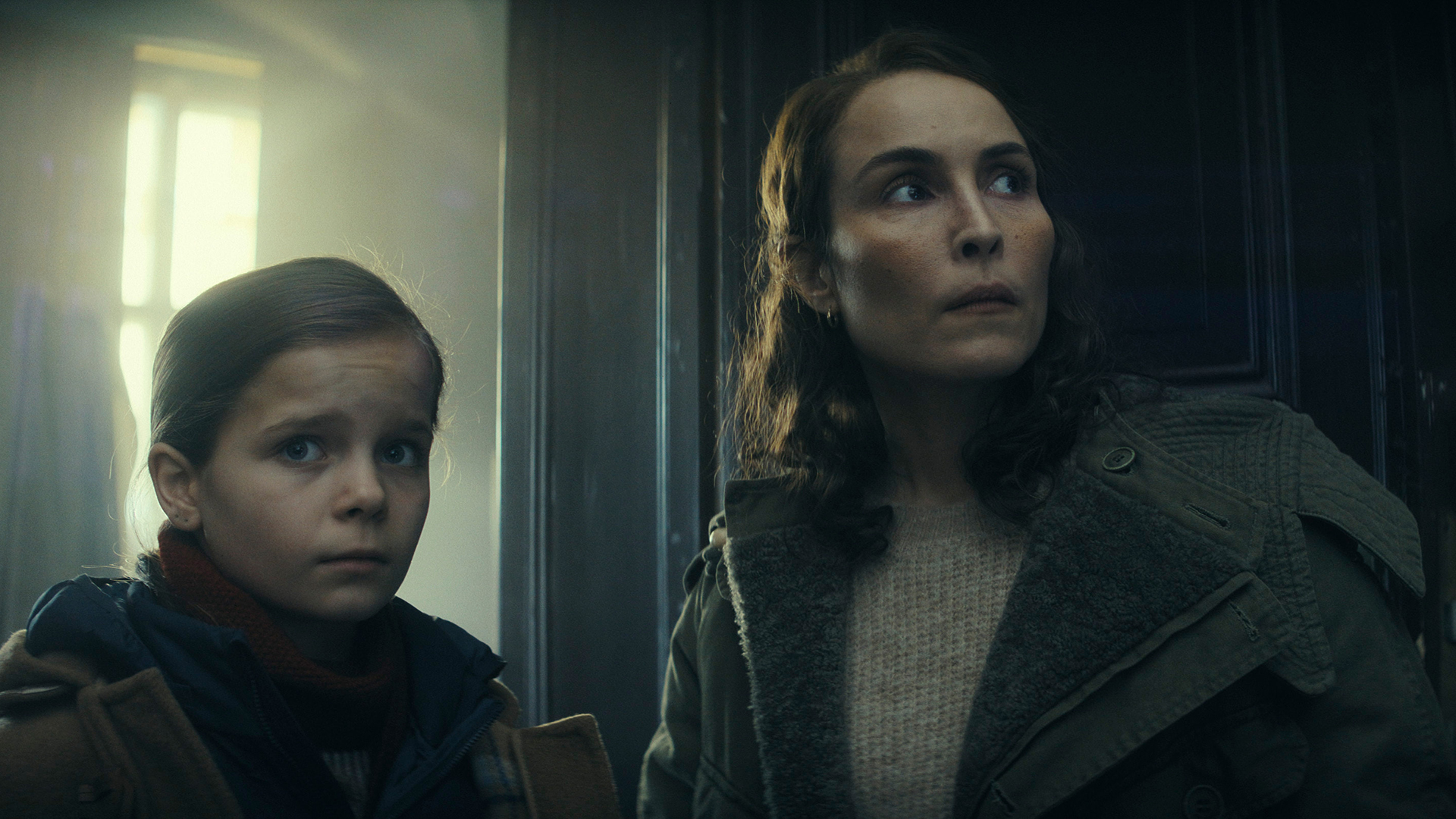
Jo eventually gets to the Skagerrak Marine Observatory, trying to get answers about the disturbing tapes that she received in episode 4 straight from the people who recorded them. Surprise, surprise, it's an off-beat brother and sister duo. Both have seen better days, but it's Laurenz Bang (Kurt Dreyer) who elicits a few laughs with his unchecked paranoia. Walborg 'Wallie' Bang (Birthe Neumann) proves to be more useful by giving Jo and Alice a hefty info dump, reassuring them that something is definitely off about how the powers that be have handled space trips in the past. As previously mentioned, it's good to see "Constellation" trying to build up a larger conspiracy.
The Bangs' "ghost tapes" are unsettling, producing nothing but static until the "mind is trained" (maybe being a little "cuckoo" is needed). Yet, Jo's later experience inside the car with the toy player Alice has and proximity to the CAL cylinder (which isn't supposed to still be operational) reveals something which can be objectively heard and isn't just in her mind or Alice's. Soviet cosmonaut recording aside, we also hear a living Paul Lancaster (William Catlett) in another tape, thus making "contact" with the parallel universe possible outside their own subjective experiences.
The episode ends with Jo giving the Paul tape another listen inside her cabin in Sweden (after a risky shortcut through a frozen lake). Startled, Alice points out that the Alice in that recording isn't her. This is hardly a shocker if you hadn't fallen asleep or weren't playing on your phone while watching previous episodes. That said, the very last scene, which has Alice looking for her mother out in the snow doesn't really fit with this "main" reality we've been following for most of episode 5, nor the one where she's there with Magnus. Is the sharp editing playing tricks on us or have we also been following a third reality all along? Now that would be a decent twist.







